Scott Sunderland: Homeward bound
Australian reflects on 20 years of life in the professional peloton
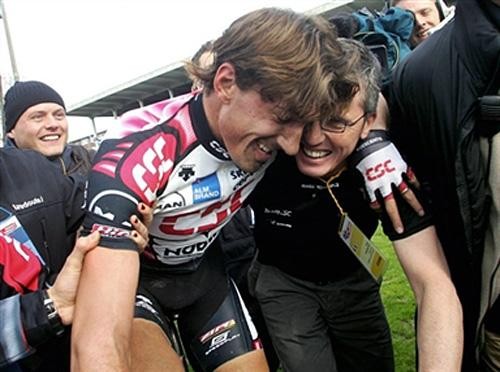
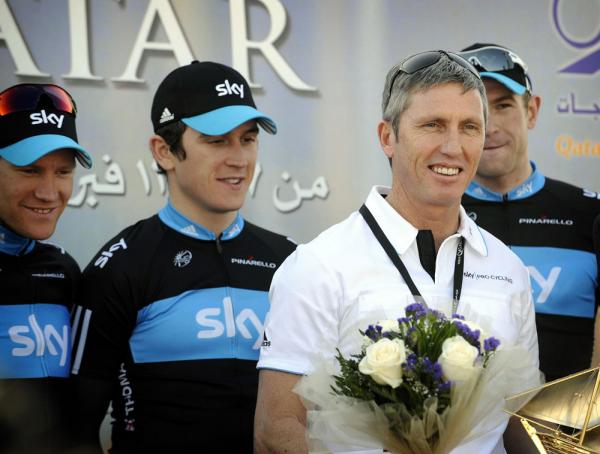
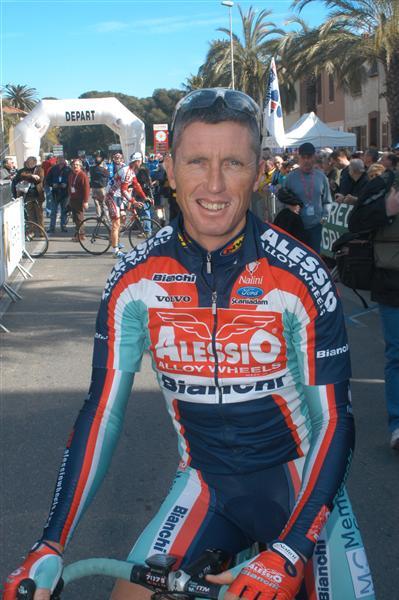
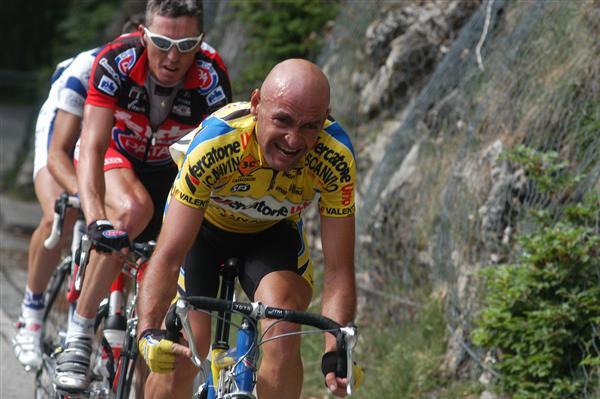
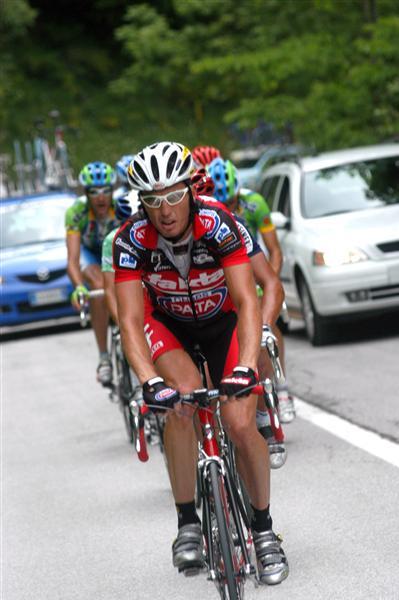
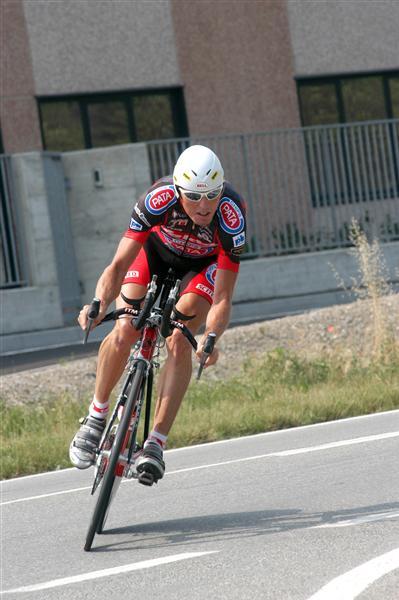
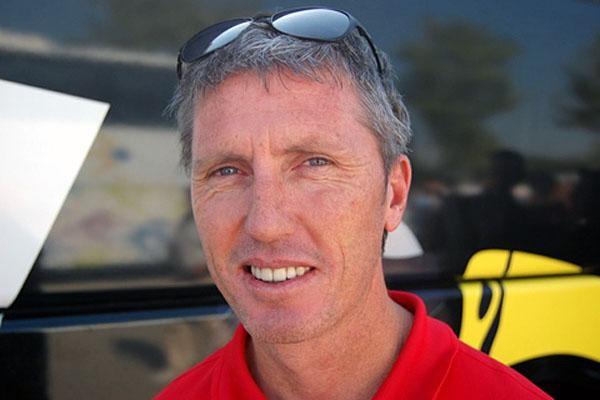
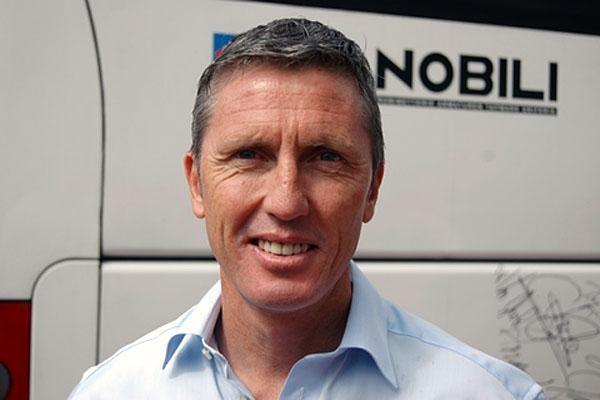
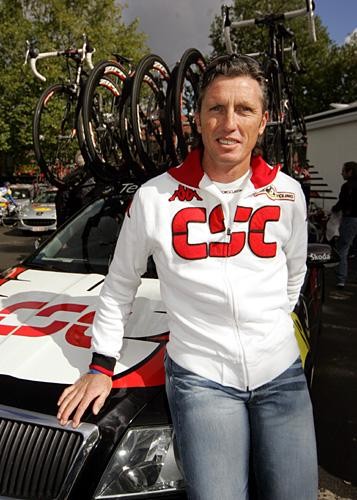
In 1984 Scott Sunderland left the northern New South Wales town of Inverell as a teenager with little more than his bike and the dream of taking his place in the European professional peloton. This week, 26 years on, he returned to the 12,000-person town with his Belgian wife and two sons, and fond memories of what turned out to be a 20-year professional career as a highly respected racer and team manager.
Sunderland spoke to Cyclingnews before his departure from Belgium. While he will remain involved with cycling from Australia he reflected upon his experience as a professional and the change he has witnessed in his beloved sport over the past two decades.
Sunderland has observed first-hand the steady outwards growth of cycling from its traditional European heartland and as a non-European he himself raced for Dutch, Belgian, French, Danish and Italian teams in a 14-year professional career, before distinguishing himself as a team director with Danish squad CSC, and most recently with British outfit Sky.
Cyclingnews: It's been a long time since you left Australia. What has motivated your return?
Scott Sunderland: I just need to step back for a period of time. I can't really predict how long that will be for now, but I just need to step back and take things a little bit easier for my family. I need to have a little more flexibility in my work so that I can be available to my family when they need me. That's something you don't have in professional cycling, or any professional sport for that matter. When you have a team that has goals to peak towards and consistently perform, you can't really be on call when you have to be there for your family.
The inspiration behind the move is to slow life down a bit, which has been difficult here. The opportunities for doing that in Australia are quite a bit bigger. I will stay involved with cycling both in Australia and internationally.
CN: What do you remember of your first race as a professional?
The latest race content, interviews, features, reviews and expert buying guides, direct to your inbox!
SS: My first race as a professional was the Tour Méditerranéen with TVM in 1990. It was mixed emotions for me really because I'd done Paris-Nice as an amateur, believe it or not, with a Swiss amateur team two years previously so I kind of knew what to expect. I'd also raced the Tour de l'Avenir - which at that point the pros could do - and I'd done it with TVM so I had some experience racing against the professionals. There were also a lot of pro-am races in Switzerland that I did while I was racing there with a Swiss club. But I was still anxious at the Tour Méditerranéen because I was doing it with a pro licence and as a paid professional for the first time.
CN: What about your first win?
SS: My first win was Trofeo Pantalica in Sicily in 1991. In those days we did the Tour of Sicily, Trofeo Pantalica and the Tour di Etna. At that time everyone went to do those races and then you went from there to do Tirreno-Adriatico and Milan-San Remo.
CN: Your crash at Amstel Gold in 1998 was obviously a very dramatic moment in your career. Looking back at it 12 years later was that a turning-point in your life?
SS: Yeah, it was. In a lot of ways it mellowed me and in a lot of other ways it gave me drive. I learnt a hell of a lot from that and certainly in terms of my relationship with my wife we became a very, very strong team together. There was a lot to go through on a personal level for us and then simply dealing with it for myself. It gave me, and still does, the ability to deal with challenges.
CN: Looking at your results you had some of your best years after the crash. Do you think it made you a stronger rider?
SS: I had to do a lot of mental work, as you do with the type of massive head trauma like I had. I did a lot of work with sports psychologists, so these days there's not a lot that sports psychologists can tell me about that I haven't already read about or learnt myself through personal experience. A lot of riders have had similar crashes to myself, you know, career or life threatening, and I think you learn and understand a lot about yourself.
It also put me in good stead later when I became a sports director. It helps me to understand where riders are at; the feelings you go through when you're on a high, doing well competitively and then to be suddenly pulled out of that. A good example of that is Stuart O'Grady at CSC in 2006. He crashed at Tirreno-Adriatico after almost winning Het Volk and then again at the Tour de France [O'Grady finished the 2006 Tour de France despite a broken vertebra - Ed.].
CN: You mention working as a director with Stuart O'Grady. You've had a successful career as a sports director. There's a photo of you with Fabian Cancellara after he won Paris-Roubaix in 2006 and your expression isn't all that different to when you were winning races yourself...
SS: (Laughs) Yeah, when you're sitting in the car at a race like Paris-Roubaix or any of the Classics like Milan-San Remo when Fabian won, even Carlos [Sastre] on Alpe d'Huez, you're living and moving with them. The exhilaration that you get from seeing them performing at their best is very similar to your experience during your own career. I think that's why a lot of people stay in the sport after they retire; to still feel that high and adrenaline rush.
CN: How long did it take you to get over the instinct to be out there racing with them?
SS: It's at least a couple of years. It took at least 24 months for me I reckon. The reason I actually took [a sports director's] job was to avoid that black hole to be honest. When I had the offer from Bjarne Riis in 2004, he said 'why don't you come and race with the team until April next year and then become a sports director? You can be captain on the road and then make the switch.' But I didn't really see that working. I wanted to go through the team-building process as a sports director rather than as a rider. Plus, it's a lot of effort to prepare even for those three months of racing and it might have left me feeling unfulfilled.
I'm happy I made that decision because I think I avoided that black hole and the feeling of 'oh shit, I would have loved to have done another year.' Mentally I was still able, but my body was just shutting down.
CN: You're an Australian who raced for Swiss, Dutch, Belgian, French, Danish and Italian squads, as well as working as a director with Danish and British teams. You've seen and been part of a lot of growth in cycling over the last 20 years. What are the biggest changes you've observed within the sport?
SS: In a nutshell it's the professionalism of the sport: the professionalism of the UCI; the growth of the sport with ASO and race organisers. Being a part of that with several of my colleagues and compatriots like Allan Pieper has been very rewarding. Cycling is a lot more forward-thinking.
I think the biggest thing just recently is the anti-doping stance. I think it's fantastic and I'd love to be a bike rider at this time. People ask me, 'would you let your son race professionally, knowing that there has been doping in the sport' and I tell them I would have no problems letting my son ride. I know what's being done in this sport and I know there are people getting caught because of the testing. In other sports I couldn't say the same; other sports cannot give the guarantees compared to what cycling is doing to fight doping.
Cycling is also becoming very much a global sport; I don't see it as a European sport anymore. I think in the coming five-to-six years we're going to see the total globalisation in terms of teams and the race programme.

Scott Sunderland drives the pace in a breakaway group.
CN: What about the growth of Australia as a force in professional cycling?
SS: Logistically, Australia is still just as far away as when I started. But with the internet now and modern technology the fans are a lot closer, even watching races live which leads to natural growth. Thinking back to the days for myself, Steven Hodge and Allan Peiper we were reading magazines that were three months old. By the time they'd come out by boat it was pretty old news, but still, it didn't stop me from wanting to keep in touch with it. There's been a lot more investment too. Sport is a great way of showcasing a country.
CN: What are your fondest memories of your time as a professional?
SS: The two fondest memories for me were winning the first stage of Castilla Leon 16 months after my accident. The second fondest memory was doing the parade lap on the Champs-Élysées after the 2004 Tour de France. Knowing that was my last year as a professional rider, doing that lap with my son on the top tube of my bike was very special. For me, that was closure to my career as a professional rider.
CN: Is there anything you feel you didn't achieve in cycling that you weren't able to do?
SS: There's only one thing that I really would have liked to have done. Everyone's heard about and seen the yellow jersey at the Tour de France and the pink jersey at the Giro d'Italia, but for me the rainbow jersey was the one I really wanted. For me, if I could have done anything in cycling, that's the thing I would have wanted: to have the rainbow jersey.
CN: Tricky question, but how would you sum up the last 20 years?
SS: It's been a fantastic journey. I left home when I was 17 to follow my passion for cycling and I haven't stopped travelling since. The amount of people I've met, the acquaintances and friends I have all over the world, that's been the biggest gift from cycling to me. If it weren't for this sport I would never have had all the experiences of the past 20 years and met all these people.
I know I've got my own personality and way of doing things, but I've been able to see and experience different ways of working, different cultures and beliefs. It's been very rewarding and I've got a lot to thank cycling for.
Racing career at a glance
Scott Sunderland's European story began when he arrived in Geneva, Switzerland in 1987. There he served his European apprenticeship with the local Mazza Amateur Team, winning six races in 1988. Two years later, he made his professional debut with legendary Dutch squad TVM, where he raced with Britain's Robert Millar and Dane Jesper Skibby. It was in his second season with the team that Sunderland won Sicilian race Trofeo Pantalica, the first of nine professional victories.
His career was marked most dramatically by a horrific crash at Amstel Gold Race in 1998. He had moved to Palmans-Ideal that year after stints at Lotto and Gan. His season had started strongly with Victory at GP Nokere and top-20 finishes at Ronde van Vlaanderen, Gent-Wevelgem and Liege-Bastogne-Liege, but with 30 kilometres to go in the Dutch Classic he was thrown across the road after coming into contact with the team car of his former team, TVM. It took more than a year for Sunderland to recover from massive head injuries suffered in the accident, but he returned to competition in 1999, winning the opening stage of Vuelta a Castilla Leon.
In 2001 Sunderland played a role in the emergence of Scandinavian professional teams with a move to Fakta. He spent three years with the Danish outfit, winning three races and recording 23rd place at the 2003 Giro d'Italia. He closed his racing career in 2004 at Alessio-Bianchi, helping Swede Magnus Backstedt to victory at Paris-Roubaix before completing his second and final Tour de France.
Scott Sunderland's professional victories:
1991 Trofeo Pantalica
1992 Overall victory at Mazda Alpine Tour
1993 Schynberg Rundfahrt Sulz
1998 GP Nokere
1999 Stage one at Vuelta a Castilla Leon
2000 Noosa Criterium
2001 Grand Prix Fourmies
2001 Grand Prix Pino Cerami
2002 Stage two at Bank Austria Tour